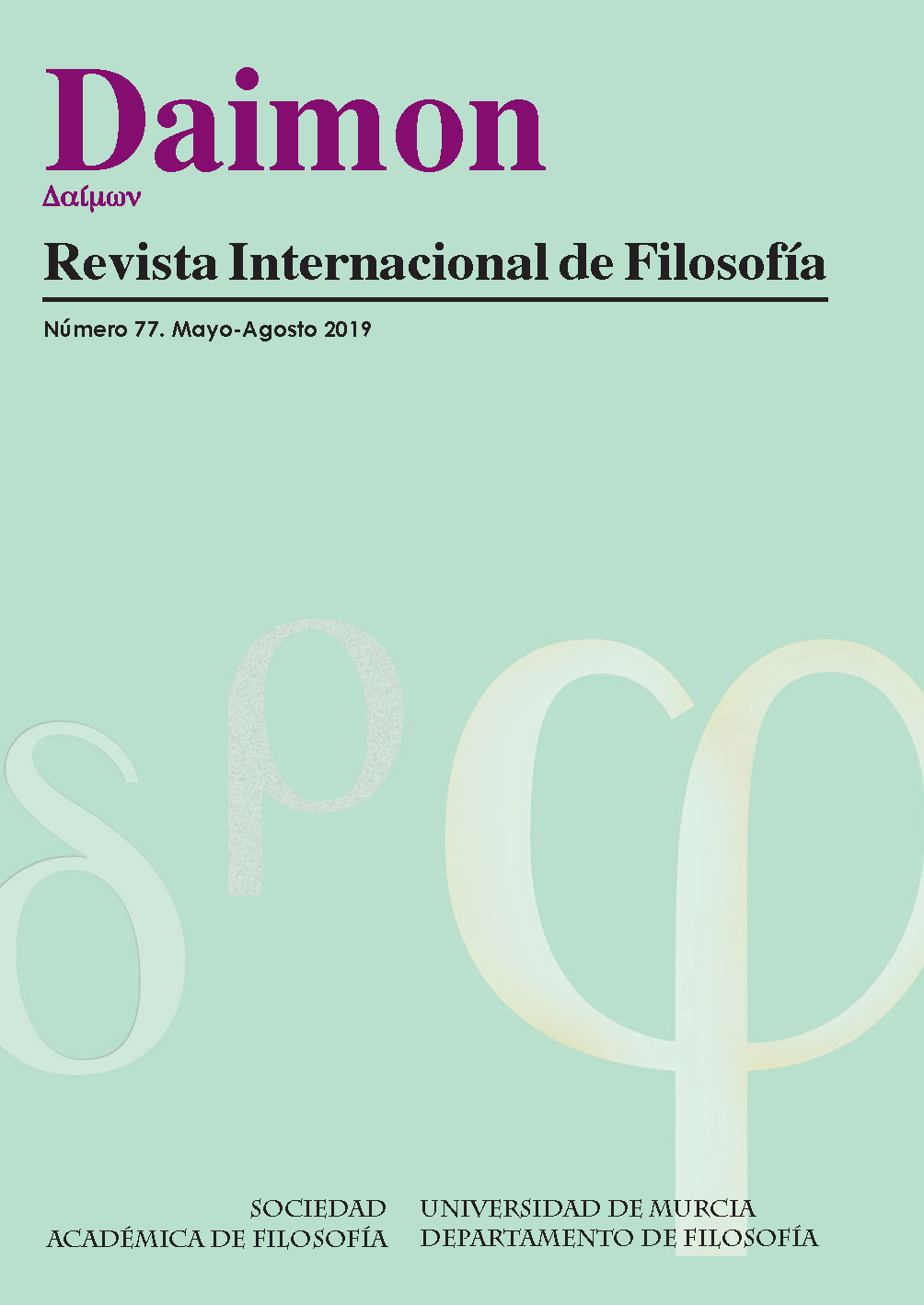Los experimentos mentales como género literario en el debate sobre identidad personal
Agencias de apoyo
- Programa de Becas Posdoctorales en la UNAM
Resumen
El uso de experimentos mentales tradicionalmente ha sido uno de los principales recursos metodológicos en el debate sobre la identidad personal. Sin embargo, en las últimas décadas han recibido un creciente número de críticas. Esto ha provocado que muchos filósofos interesados en el problema de la identidad personal los hayan abandonado. Es el caso de la mayoría de los teóricos de la identidad narrativa. En este artículo comparo las críticas de Wilkes a los experimentos mentales con las de Ricoeur. Al hacerlo, espero demostrar que sus críticas se cancelan mutuamente, al menos de manera parcial, y que los teóricos de la identidad narrativa están comprometidos a aceptar el uso de experimentos mentales.
Descargas
-
Resumen1013
-
pdf846
Citas
Beck, S. (2006). These Bizarre Fictions: Thought Experiments, our Psychology and our Selves. Philosophical Papers, 35(1), 29–54.
Brown, J. R. (1991). The Laboratory of the Mind. New York: Routledge.
Coleman, S. (2000). Thought Experiments and Personal Identity. Philosophical Studies, 98(1), 53–69.
Dennett, D. C. (1992). The Self as a Center of Narrative Gravity. In F. S. Kessel, P. M. Cole, & D. L. Johnson (Eds.), Self and Consciousness: Multiple Perspectives (pp. 103–115). Hillsdale, NJ: Erlbaum.
Dennett, D. C. (2013). Intuitions Pumps and Other Tools for Thinking. New York: W. W. Norton & Company.
Diamond, C. (2002). What if x isn’t the number of sheep? Wittgenstein and Thought-Experiments in Ethics. Philosophical Papers, 31(3), 227–250.
Gendler, T. S. (2002). Personal Identity and Thought Experiments. The Philosophical Quarterly, 52(206), 34–54.
Johnston, M. (1987). Human Beings. The Journal of Philosophy, 84(2), 59–83.
Lamarque, P. (2007). On the Distance between Literary Narratives and Real-Life Narratives. In D. D. Hutto (Ed.), Narrative and Understanding Persons (pp. 117–132). Cambridge: Cambridge University Press.
Locke, J. (1982). Ensayo sobre el entendimiento humano. México: Fondo de Cultura Económica.
MacIntyre, A. (2007). After Virtue: A Study in Moral Theory (Third Edition). Notre Dame, IN: University of Notre Dame Press.
Martin, R. (1998). Self-Concern: An Experiential Approach to What Matters in Survival. Cambridge: Cambridge University Press.
Parfit, D. (1984). Reasons and Persons. Oxford: Oxford University Press.
Quine, W. O. (1972). Review of Identity and Individuation, by Milton K. Munitz. The Journal of Philosophy, 69(16), 488–497.
Ricoeur, P. (1996). Sí mismo como otro. Madrid: Siglo XXI.
Rorty, R. (2001). La filosofía y el espejo de la naturaleza. Madrid: Cátedra.
Rovane, C. (1998). The Bounds of Agency. Princeton, NJ: Princeton University Press.
Ryan, M.-L. (2013). Impossible Worlds and Aesthetic Illusion. In W. Wolf, W. Bernhart, & A. Mahler (Eds.), Immersion and Distance: Aesthetic Illusion in Literature and Other Media (pp. 129–146). Amsterdam: Rodopi.
Schechtman, M. (1996). The Constitution of Selves. Ithaca, NY: Cornell University Press.
Searle, J. R. (1980). Minds, Brains, and Programs. Behavioral and Brain Sciences, 3(3), 417–424.
Shoemaker, S. (1964). Self-Knowledge and Self-Identity. New York: Cornell University Press.
Sorensen, R. A. (1999). Thought Experiments. Oxford: Oxford University Press.
Taylor, C. (2001). Sources of the Self. Cambridge, Mass.: Harvard University Press.
Van Inwagen, P. (1997). Materialism and the Psychological-Continuity Account of Personal Identity. Noûs, 31(Supplement: Philosophical Perspectives, 11, Mind, Causation and World), 305–319.
Wilkes, K. V. (1988). Real People: Personal Identity without Thought Experiments. Oxford: Clarendon Press.
Williams, B. (1957). Personal Identity and Individuation. Proceedings of the Aristotelian Society, 57, 229–252.
Williams, B. (1970). The Self and the Future. The Philosophical Review, 79(2), 161–180.
Zarnitsyn, A. (2013). Thought Experiments in Personal Identity: A Literary Model (PhD Thesis). University of Illinois at Chicago, Chicago.
Las obras que se publican en esta revista están sujetas a los siguientes términos:
1. El Servicio de Publicaciones de la Universidad de Murcia (la editorial) conserva los derechos patrimoniales (copyright) de las obras publicadas, y favorece y permite la reutilización de las mismas bajo la licencia de uso indicada en el punto 2.
2. Las obras se publican en la edición electrónica de la revista bajo una licencia Creative Commons Reconocimiento-NoComercial-SinObraDerivada 3.0 España (texto legal). Se pueden copiar, usar, difundir, transmitir y exponer públicamente, siempre que: i) se cite la autoría y la fuente original de su publicación (revista, editorial y URL de la obra); ii) no se usen para fines comerciales; iii) si remezcla, transforma o crea a partir del material, no podrá distribuir el material modificado.
3. Condiciones de auto-archivo. Se permite y se anima a los autores a difundir electrónicamente las versiones pre-print (versión antes de ser evaluada) y/o post-print (versión evaluada y aceptada para su publicación) de sus obras antes de su publicación, ya que favorece su circulación y difusión más temprana y con ello un posible aumento en su citación y alcance entre la comunidad académica. Color RoMEO: verde.











